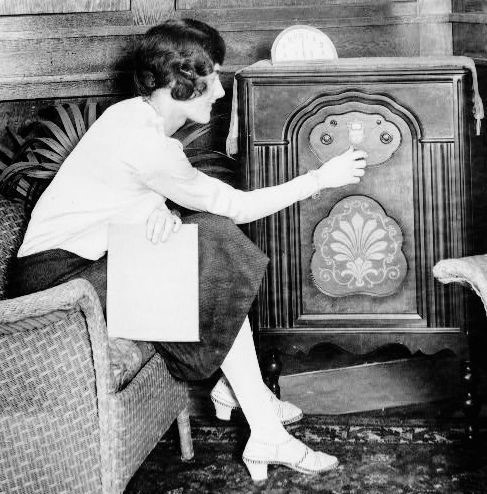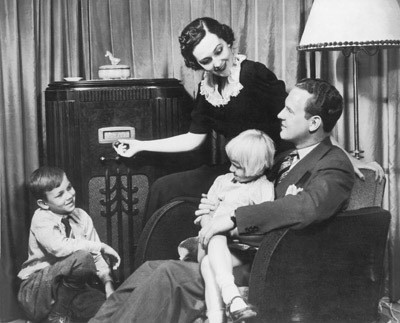29 June 2018

In the 1932 American election Franklin Roosevelt was challenging the incumbent, Herbert Hoover. The two men were encouraged to engage in debate. From a technological perspective, the most obvious place to do so was via the radio; 50% of American households owned a radio by 1932. Both men were encouraged to deliver radio messages that would be nationally broadcast. As the sitting President, Hoover decided to speak second; a logical choice as it afforded him the opportunity to critique and refute anything that Roosevelt might say. Both men were allotted a maximum of twenty minutes. Roosevelt began by outlining the policies that we now refer to as the New Deal. He spoke in a precise and clear manner for exactly 18 minutes and then stopped. After 30 seconds of silence many Americans checked the volume on their radios. After a minute they turned the radio off and on again. By 1 minute and 30 seconds many chad hanged the channel, or turned the radio off completely. When Hoover began his address the radio audience had been reduced by nearly 50%. Roosevelt is often referred to as ‘The Great Communicator’ and, like all those who communicate effectively, he knew the value of silence.
On Wednesday I attended the lower school public speaking competition, now in its 32nd year, which was very well organised by Mrs Scott and fully supported by the English department. The 1930s are often recalled as an ‘age of anxiety’ or a ‘dark valley’ in human history. Young people are often very perceptive regarding the public mood and the nature of the ten speeches on Wednesday would suggest that they see a parallel between the 1930s and 2018. The finalists shared their thoughts on the dangers of artificial intelligence (just because we can, should we?): racist attitudes; the beginning of a new dark ages with regard to how humans debase themselves to gain viewers on social media; how the lack of national resources for those with mental health issues represents a national tragedy; the cruelty of animal testing and the ways in which the media demonises particular groups to generate conflict. Each finalist had thought carefully about what they wanted to say. They used words in a structured, considered and precise manner. They had a clear understanding of what they wanted to convey; they set out to persuade, not to threaten or dominate. They understood the potential impact of the words and phrases that they were using because, ‘Once a word has been allowed to escape, it cannot be recalled.’ That is very much against the trend of contemporary discourse. People often don’t think carefully; they act impulsively and often use words to deliberately cause harm or offence. Sometimes this is intentional, sometimes not; but words develop a life of their own once they have been posted or shared. They linger after the situation has changed, or the people using them have matured.
These are societal problems and our young people need time and space to develop without being overwhelmed by the constant need to update, check, share, respond.  All schools need to often a structured response to this worrying trend. To address this we are making a slight change to our policy regarding mobile phones. At present mobile phones have to be invisible in our school building; as of September they will be invisible across the wider school site. This will bring us into line with other local schools, advice from the Department of Education and a range of psychological and medical studies that highlight the harm that can be caused when students spend too much time ‘on line.’ Good communication skills are essential in the modern world, but thoughtless or inappropriate examples adversely affect and weaken society. Some of the greatest communicators in history have understood the importance of silence in certain circumstances.
All schools need to often a structured response to this worrying trend. To address this we are making a slight change to our policy regarding mobile phones. At present mobile phones have to be invisible in our school building; as of September they will be invisible across the wider school site. This will bring us into line with other local schools, advice from the Department of Education and a range of psychological and medical studies that highlight the harm that can be caused when students spend too much time ‘on line.’ Good communication skills are essential in the modern world, but thoughtless or inappropriate examples adversely affect and weaken society. Some of the greatest communicators in history have understood the importance of silence in certain circumstances.
“Let thy speech be better than silence. Or be silent.” Dionysius
Mr O’Sullivan
